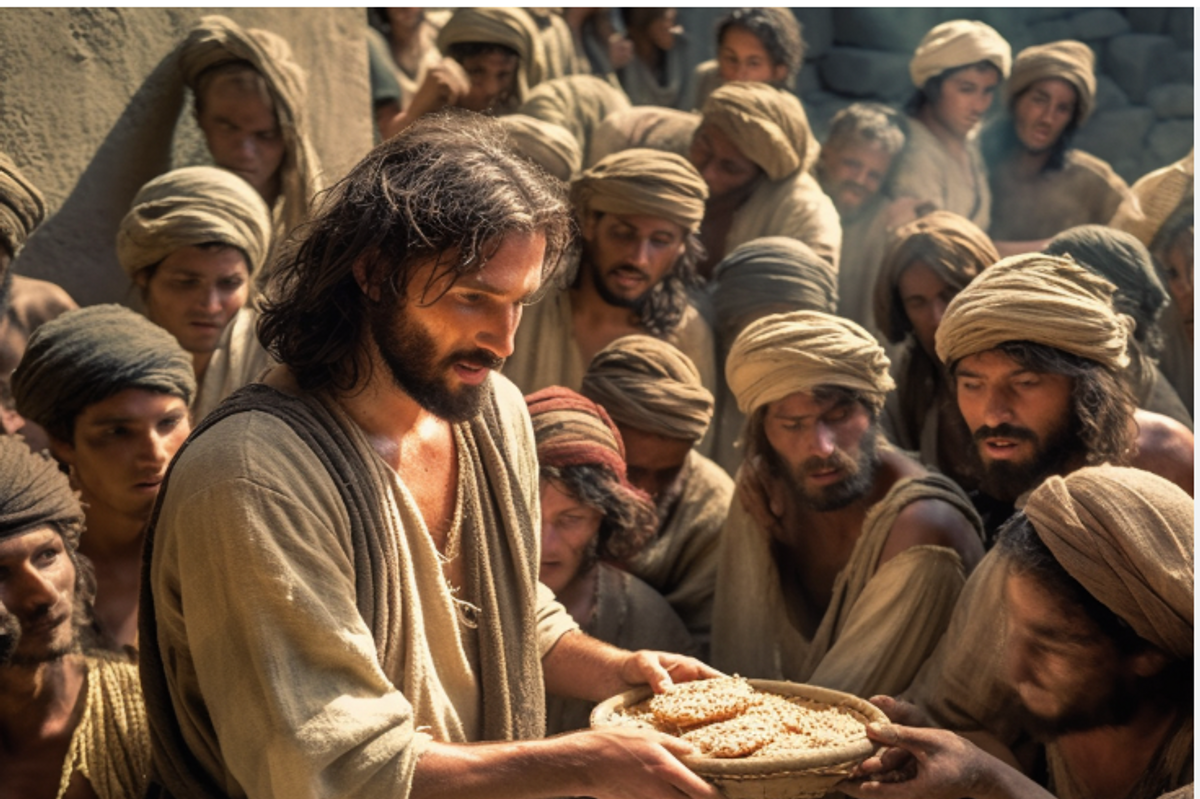Christian nationalist group Jesus Loves Me
An iconic Texas band, the Austin Lounge Lizards, has a song that nails the absurd self-righteousness of Christian supremacists: "Jesus Loves Me (But He Can't Stand You)."
I think of this refrain when I behold today's right-wing proselytizers wailing that the blessed rich should not be taxed to assure that everyone has the most basic human needs. Seems very un-Jesusy to me.
One bizarre focus of their religious wrath is a wholly sensible and biblically sound national policy: subsidizing school districts to assure that every child has healthy meals to fuel their daily learning. Yes, in the Christian nationalists' book of public abominations, government feeding of children is a holy no-no. Project 2025, the Republican blueprint to impose theocratic rule over America, proclaims school meals a socialist/Marxist evil to be eradicated.
The extremists cry that if there is any free lunch "giveaway," it must be narrowly restricted to truly destitute students. But wait — publicly singling out those children would stigmatize them. Plus, how odd to hear Republicans demanding an intrusive, absurdly expensive bureaucratic process empowering government to decide who's eligible to eat!
In fact, the student lunch subsidy runs as low as 42 cents a meal, so it's far cheaper, fairer and (dare I say it?) more Christian simply to offer it to all. Indeed, the program is akin to the biblical story of Jesus providing fishes and loaves to the multitude. He imposed no income test —everyone got a fish.
Interestingly, the same lawmakers opposing 42-cent meals for kiddos today routinely and enthusiastically feed billions of our tax dollars to corporate, ethically challenged profiteers who love money above all. As I recall, Jesus couldn't stand people like that.
What Woody Guthrie Said About Inequality
Woody Guthrie's prescription for inequality in America was straightforward: "Rich folks got your money with politics. You can get it back with politics."
For Guthrie, "politics" meant more than voting, since both parties routinely cough up candidates who meekly accept the business-as-usual system of letting bosses and bankers control America's wealth and power. It's useless, he said, to expect change to come from a "choice" between Tweedledumb and Tweedledumber. Instead, common folks must organize into a progressive movement with their own bold change agenda, become their own candidates and create a politics worth voting for.
Pie in the sky? No! Periodic eruptions of progressive grassroots insurgencies have literally defined America, beginning with that big one in 1776. Indeed, we could take a lesson today from another transformative moment of democratic populism that surged over a century ago, culminating in the Omaha Platform of 1892. This was in the depths of the Gilded Age, a sordid period much like ours, characterized by both ostentatious greed and widespread poverty, domination by monopolies, rising xenophobia, institutional racism — and government that ranged from aloof to insane.
But lo — from that darkness, a new People's Party arose, created by the populist movement of farm and factory mad-as-hellers. They streamed into Omaha to hammer out the most progressive platform in U.S. history, specifically rejecting corporate supremacy and demanding direct democracy.
That platform reshaped America's political agenda, making the sweeping reforms of the Progressive Era and New Deal possible. As one senator said of the Omaha rebellion, it was the start of robber baron wealth flowing "to all the people, from whom it was originally taken." And that's what Guthrie meant by "politics."
Reprinted with permission from Creators.









